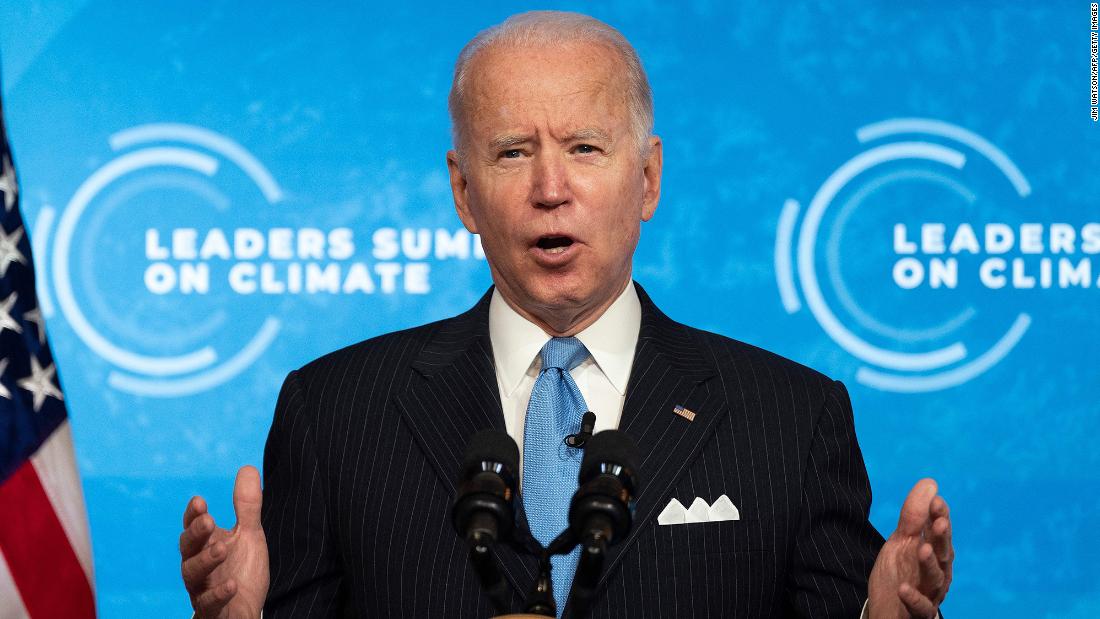
Any president’s first venture abroad is closely watched for its symbolic nod to foreign policy priorities. Biden’s plans amount to a sign that after a tumultuous period under President Donald Trump, transatlantic ties are at the forefront of his agenda.
Despite his long-standing interest in foreign policy, Biden hasn’t yet ventured outside the United States since becoming president, as Covid-19 limited travel overseas. Typically, new presidents begin foreign travel a few months into office.
But as vaccinations ramp up in the US and abroad, aides are laying plans for Biden to leave the country.
This year’s G7 summit is hosted by Prime Minister Boris Johnson and will be held along the Cornish coast. Biden has engaged with the other leaders in the group by telephone, in virtual meetings and in one in-person visit with Japan’s prime minister. But the summit will be his first time greeting them all together in person.
His presence is likely to produce a more relaxed atmosphere than when Trump was at the table. Over the course of summits in Sicily, Quebec and the Atlantic coast of France, Trump was a consistently disruptive presence, haggling with his counterparts over climate change, global trade and the prospect of re-inviting Russia to join the group. By the end of his presidency, Trump questioned whether he really needed to attend, deeming the summits a waste of time.
Biden, meanwhile, joined a virtual G7 meeting early in his tenure and has voiced a desire to reinvigorate the gathering of the world’s leading economies.
In its announcement, the White House said Biden at the summit would “reinforce our commitment to multilateralism, work to advance key U.S. policy priorities on public health, economic recovery, and climate change, and demonstrate solidarity and shared values among major democracies.”
He’ll also meet independently with Johnson and some of the other G7 countries, which include the United Kingdom, Canada, France, Germany, Italy and Japan.
In Brussels, Biden plans to attend a NATO summit, which the defense alliance formally announced on Thursday. He’ll also participate in a summit with leaders from the European Union, also headquartered in the Belgian capital.
That, too, will likely look markedly different from Trump’s first appearance at NATO headquarters, where his antagonism was neatly illustrated when he shoved aside the Montenegrin Prime Minister before a photo-op.
“This trip will highlight his commitment to restoring our alliances, revitalizing the Transatlantic relationship, and working in close cooperation with our allies and multilateral partners to address global challenges and better secure America’s interests,” the White House said.
Not on the schedule, at least for now, is a summit meeting with Russian President Vladimir Putin, whom Biden has invited for talks this summer in Europe.
Biden’s national security adviser Jake Sullivan discussed the prospective summit with his Russian counterpart this week but told CNN’s Christiane Amanpour in an interview that details like the date, location and agenda had yet to be settled.
In its statement announcing Biden’s trip, the White House said “potential additional elements” could be tacked on later.
For decades, it had been traditional for a new president to visit either Canada or Mexico as his first foreign trip. But Trump abandoned that, and Biden has been restricted in his travels by the pandemic.
Trump’s first foreign destination was Saudi Arabia, with subsequent stops in Israel and Europe. He and his aides framed the trip around visiting the capitals of three major religions: Islam, Judaism and Christianity.
President Barack Obama, after visiting Canada early in his term, made stops at a G20 summit in the UK and NATO meetings in Strasbourg during his first major foreign trip.
But he went onwards to Turkey and a surprise visit to Iraq, a reflection of the Middle East’s pull on his foreign policy even as he and his aides sought to focus more on Asia.
Biden, too, is hoping to shift resources and focus away from the Middle East and other long-term American concerns, including the war in Afghanistan.
This story has been updated with additional information.



